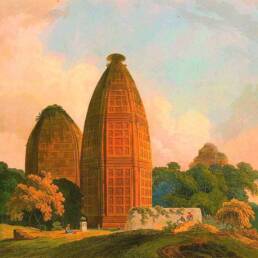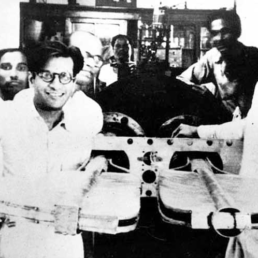In a military cemetery in Northern France lies the grave of a Bengali man who was known to his friends as Jon. Jon is believed to be the first Bengali man to have died in the Great War. This is his story.
On the night of May 22, 1916, a wiring party in the trenches in northern France near Somme, came under a heavy attack. Among the privateers was a Bengali man, Jogendra Nath Sen, fondly called Jon Sen by friends.

Sen was born in Chadernagore, the erstwhile French Colony, on the banks of the Hooghly River. In 1910, he traveled to England for higher studies on board the SS Golconda. In three years, Sen would complete his degree in Electrical Engineering while working part-time.
But by 1914 Europe was at war. With the Archduke’s assassination, fragile egos collided putting an entire generation into the trenches. With the war at its doorstep, Britain needed men to fight for her.
Britain then had only a standing army of 120,000 men; so Lord Kitchener, the secretary of state for war, introduced a new scheme for young men with White collar jobs. They had to join the army.
The idea was to get men between the ages of 19 and 35, and preferably single, from large towns and cities to join the army. Soon Pals battalions came up in all the major cities, including Leeds.
Sen was one of the first to volunteer for the program from Leeds and became part of the 1st Leeds “Pals” Battalion. As the battalion paraded through the city of Leeds before being sent off, Sen stood out from the rest in more ways than one.
Soon Sen was dispatched to protect the Suez Canal as part of the 15th West Yorkshire Regiment.
The Canal became an immediate flashpoint between warring parties and Sen would spend a considerable amount of time in Egypt. Fluent in several languages and highly educated in worldly matters, Sen became quite popular among his fellow soldiers.
But inequality was visibly prevalent. Despite his degree and education, Sen was never allowed to join as an officer and was never promoted from the rank of Private.
After the situation in Suez diffused a bit, the regiment was deployed to France. On May 22, 1916, Sen’s wiring party came under heavy fire and bombardment. Sen was initially hit by shrapnel but soon after he was hit in the neck, leading to his untimely demise.
An obituary of Sen was published in The Times in September 1916. His commanding officer wrote:
“His loss is felt very much throughout the whole of the company. He always showed himself to be a keen and upright soldier, and myself and the officers of this company thought a great deal of him.”
Sen’s personal belongings were sent back to India to his elder brother after the war. His blood-stained glasses and other belongings are now kept at the Institut de Chandernagore for curious onlookers to gaze at.
Sen is also commemorated on the Leeds University war memorial outside the Brotherton Library. Besides, Mill Hilton Chapel near the Leeds city center, has two rolls of honor in Sen’s name. Know why? Because Sen was a member of the chapel choir during his time.
Sen represents an intriguing but often forgotten chapter in the subcontinent’s history representing many who went to war, some on their own, never to return, never to see their homeland again.
Sources:
Legacies of War: Jogindra/Jogendra Sen: Leeds Pal, https://legaciesofwar.leeds.ac.uk/yorkshire-and-the-great-war/jogendra-sen-leeds-pal/. Special mention to Professor Santanu Das, Visiting Professor King’s College London for bringing out stories of J.N Sen and many like him into the limelight.




